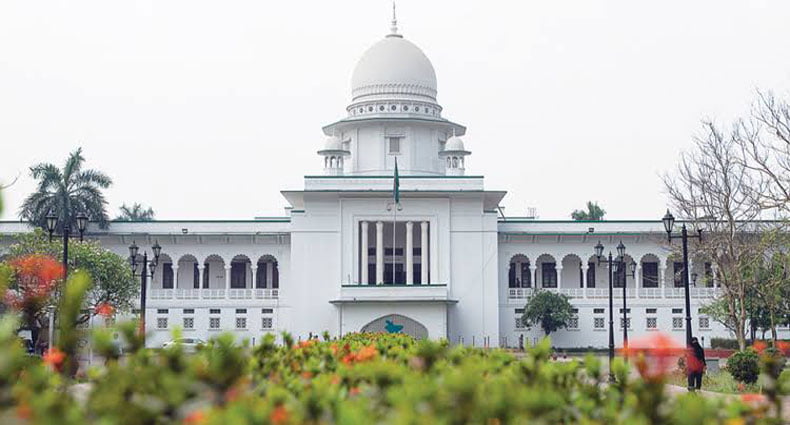
HC asks BB to explain lending rate limit legality
 The High Court on Tuesday asked the government and the Bangladesh Bank to explain in four weeks why their recent decision setting the ceiling on bank lending rate at 9 per cent with effect from April 1 would not be declared illegal.
The High Court on Tuesday asked the government and the Bangladesh Bank to explain in four weeks why their recent decision setting the ceiling on bank lending rate at 9 per cent with effect from April 1 would not be declared illegal.
A bench of Justice Abu Taher Mohammad Saifur Rahman and Justice Md Zakir Hossain issued the rule after hearing a public interest litigation writ petition filed by Supreme Court lawyer Syed Sayedul Haque Suman.
The finance ministry secretary and the Bangladesh Bank governor were asked to reply to the rule within four weeks.
The BB on February 24 issued a circular setting the limit on interest for all kinds of loans, except credit card, at 9 per cent after months of discussion with the banks.
Before the BB circular was issued, most banks cut down the interest rate of deposits to 6 per cent from February 1 as the government moved to implement the 9-per cent lending rate.
Petitioner Sayedul submitted in the court that it was clear that the 9 per cent interest rate was set for the businesses whose development was allegedly being impeded because of high interest rate being charged for their loans or investments by scheduled banks.
He submitted that the decision of setting 9 per cent interest rate on loans was taken only to favour two lakh businesses or their entities, which was discriminatory and violation of the Article 27 of the Constitution.
He said that 50 lakh depositors would be losers as the banks would be forced to cut down the deposit rate to 6 per cent to implement the 9-per cent lending rate.
He submitted that non-bank financial institutions like leasing companies or co-operative companies, which are out of the preview of the 9 per cent interest rate, could charge interest arbitrarily.
He submitted that the middle-income group of people would suffer a lot as a consequence of significant reduction in the interest against bank deposits. It would also impact the depositors’ income through fixed deposit schemes, he submitted.
He submitted that such restriction on interest or profit as imposed by the Bangladesh Bank ‘is unlawful, discriminatory and against the established financial policies and international practices of free market economy’.
The bank owners have realised from the government a number of demands in the last couple of years, using the implementation of the rate as a pretext. As part of the government’s drive to enforce the rates, the Financial Institutions Division on January 19 this year set the rate at the highest 6pc for deposits of maximum 50 per cent of the state agencies’ funds in private banks. The division set the interest at 5.5 per cent for deposits of funds by the state agencies in public commercial banks.Report Newage
Copyright © 2026 Sunbd24. All rights reserved.